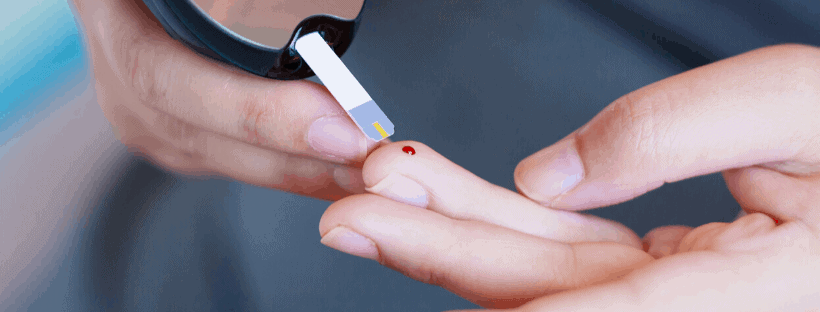

Podiatrists in
Gastonia
Languages
- English
| Monday | 8:00 AM - 5:00 PM |
| Tuesday | 8:00 AM - 5:00 PM |
| Wednesday | 8:00 AM - 5:00 PM |
| Thursday | 8:00 AM - 5:00 PM |
| Friday | 8:00 AM - 5:00 PM |

Why See a Podiatrist if You Are Diabetic?
Someone who has diabetes should see their podiatrist at least once a year. If they suffer from neuropathy, loss of sensation in their feet, have a history of ulcerations or wounds, or vascular disease, they should come in once every two months. Your podiatrist will inform you on how severe your case is.
Often, people with diabetes don’t understand how their diabetes effect their feet. Especially when a diabetic develops neuropathy and they aren’t able to feel their feet, they aren’t able to tell if they have injured themselves (either from their shoe rubbing, having a cut or wound). These injuries can lead to an infection, bone infection, and ulcers. Way too often, diabetics are not seen in time to get properly treated and will lead to an amputation.
If you or a loved one has diabetes, make sure that you’re being seen by a podiatrist at least every year.
Diabetic Foot Problems
Diabetic foot ulcers are sores or wounds that occur on the feet of people with diabetes.
It is very common for diabetics to suffer from nerve damage, which means that sometimes when they injure their feet, they don’t feel it. If they don’t feel it and they don’t notice it, as time goes on, the wound can get more and more infected.
Unfortunately, diabetics may also suffer from poor circulation, which makes it so wounds don’t heal as quickly as people without diabetes. If someone with diabetes waits too long to get their foot ulcer treated, it may be too late and amputations are not out of the question.
A common cause of foot ulcers is poorly fitting footwear. If a shoe is not the right size or shape, it can rub feet and cause sores, blisters, corns, or calluses to form. It may be in a diabetic’s best interest to consult a podiatrist when choosing footwear because with nerve damage in their feet, it can be hard for them to tell if their shoes don’t actually fit.
The fact of the matter is that if you have nerve damage in the feet due to diabetes, you should have appointments scheduled with your podiatrist on a regular basis. They will be able to inspect your feet and spot any lesions or sores that may have developed; early detection is key when it comes to diabetic foot ulcers. If you have nerve damage, you should also have your podiatrist trim your toenails properly because if you don’t do it the right way, an ingrown toenail can have serious consequences.
Tips for Diabetics
- Buy shoes late in the day. Never buy shoes that need “breaking in.” They should be immediately comfortable. Request shoes with deep toe boxes and made of leather upper material. Do not wear new shoes more than two hours at a time. Rotate your shoes. Do not wear the same ones every day.
- Contact our office immediately if you experience any injury to your foot. Even a minor injury is an emergency for a patient with diabetes.
- Do not file down, remove or shave calluses or corns yourself.
- DO NOT SMOKE. It decreases the blood supply to your feet.
- Ask about soaking your feet
- Do not trim your own toenails.
- Do not use any chemicals or strong antiseptic solutions on your feet. Iodine, salicylic acid, corn/callus removers are dangerous.
- Do not wear stockings or socks with tight elastic backs and do not use garters. Do not wear any socks with holes. Always wear shoes with socks.
- Don’t use any tape or sticky products such as corn plasters on your feet. They can rip your skin.
- Examine your feet daily for redness, warmth, blisters, ulcers, scratches, cuts and nail problems from shoes or other sources. Look at the bottoms and between toes. Use a mirror or have someone else look for you.
- Examine your shoes for foreign objects, protruding nails and rough spots inside before putting them on.
- If the circulation in your feet is impaired, contact our office.
- In the winter, wear warm socks and protective footwear. Avoid getting your feet wet in the snow and rain and avoid letting your toes get cold.
- Keep feet away from heat (heating pads, hot water pads, electric blankets, radiators, fireplaces). You can burn your feet without knowing it. Water temperature should be less than 92 degrees. Estimate with your elbow or bath thermometer (you can get one in any store that sells infant products).
- Lubricate your entire foot if your skin is dry, but avoid putting cream between toes.
- NEVER walk barefoot, neither indoors nor out.
- Never wear sandals or thongs.
Gaston Foot & Ankle Podiatrists Treat Diabetic Foot Patients
At Gaston Foot & Ankle Specialists, our podiatrists are experts in diabetic foot problems. Do not let your feet go unchecked if you have diabetes, it is not worth the risk. Feet left unchecked can lead to wounds that get infected and may lead to serious complications such as amputations. The podiatrists of Gaston Foot & Ankle Specialists want to keep you healthy and mobile.
If you have any questions or concerns regarding diabetic foot problems, do not hesitate to contact us or call us at 704-861-0425

